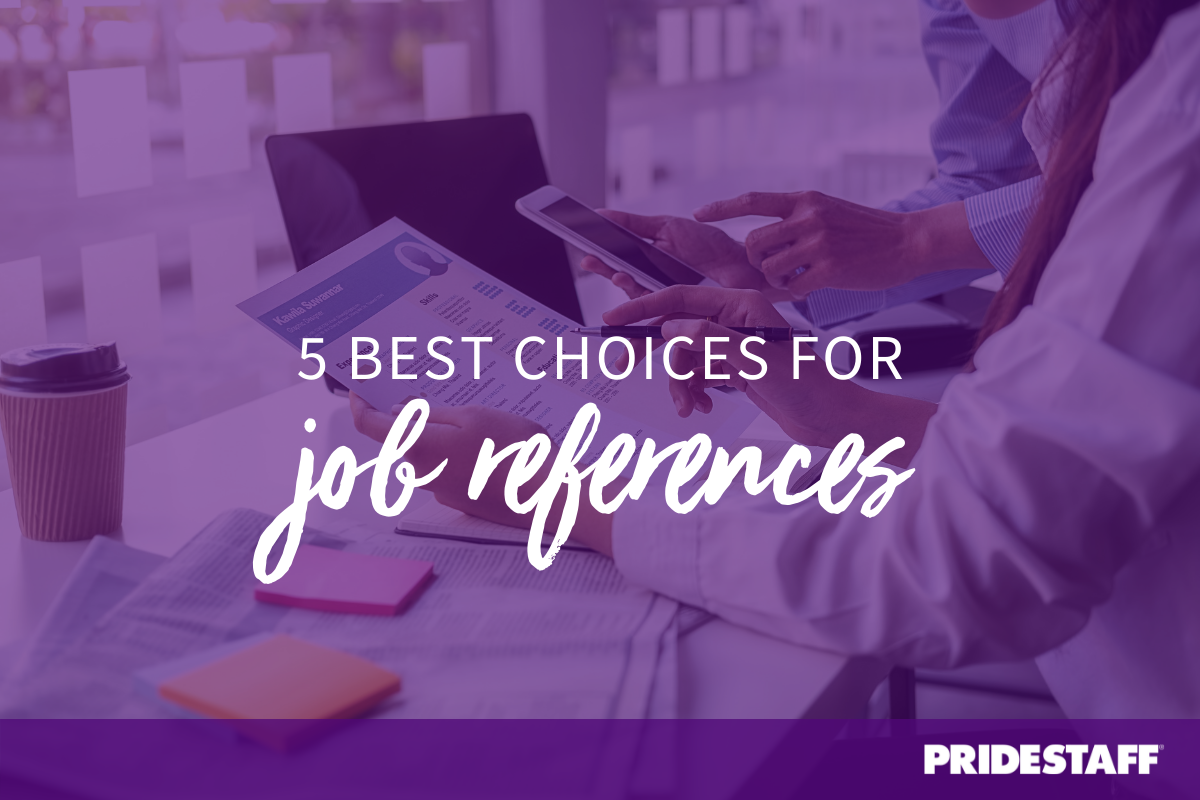The 5 Best People to Choose as Job References

The references you provide a potential employer matter. A lot.
Choosing employment references is an extremely important – yet frequently overlooked – part of the job search. Providing great references is more than a formality; it can make or break your chances of landing an offer.
Give this part of your job search process the attention it deserves! As general rules, you should:
- Pick individuals who have known you for a long time. A person who has known you for five years will be in a better position to speak about your background, character, and strengths than someone who has known you for five months.
- Choose people who know you professionally. Your mom may know you well, but a potential employer wants insights into your work performance.
- Assemble a diverse group of potential references. You never know what specifics an employer may be looking for; providing a variety of references helps ensure the hiring manager will find the information they need.
Five types of people you should consider adding as references:
1. Employers or bosses.
They’re best suited to speak about your skills, experience, and work ethic.
2. Coworkers or colleagues.
Choose people who understand your job responsibilities and the role you play in your team or department.
3. Teachers or professors.
An instructor who taught you a course related to your major or desired job can provide a strong reference about the skills and education you picked up in their course, as well as your personal character.
4. Advisors or mentors.
An academic advisor or career mentor typically knows you well and can speak about your career goals and growth over time.
5. Intern supervisors or volunteer coordinators.
If you’re in the early stages of your career, these individuals can provide insights about your work performance, character, and likely your career passions.
Once you assemble your list, use these tips to ensure the reference-checking process goes smoothly:
Get permission from each reference you’d like to use.
Before providing the name for any reference:
- Obtain that individual’s express permission.
- Make sure they’re willing and able to provide a positive reference and answer questions about you in a timely manner.
- Remember, sometimes former employers and coworkers are constrained by company policies and may be unable to provide a reference for you.
In any event, if a potential reference turns down your request for a reference, be gracious and don’t take it personally.
Keep your references informed.
When you get to the reference-checking stage with a potential employer, contact your references to let them know when and from whom they should expect a call. Then:
- Explain how much the job opportunity means to you.
- Recap the strengths, skills, and experience you’d like them to highlight when they get the call.
- Thank them in advance for their help.
Looking for your next great job?
Put your local PrideStaff recruiters in your corner. We’re here to help you with every aspect of your job search. From improving your resume, choosing references, and boosting your interview confidence, PrideStaff is here to ensure that you don’t just search, but succeed.
Contact the PrideStaff office in your area to find out more about great local job opportunities.



